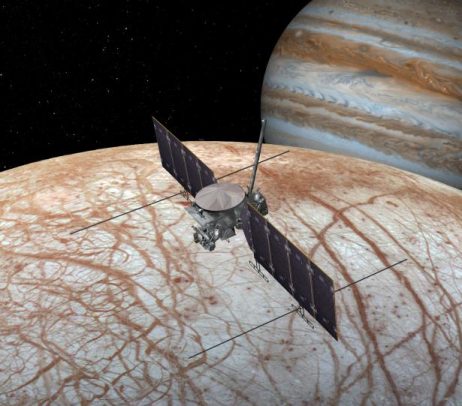UIC planetary scientist selected for NASA mission research team

Andrew Dombard, UIC professor of earth and environmental sciences, has been selected to join the gravity/radio science team for NASA’s forthcoming Europa Clipper mission.
The expedition, which is tentatively set to launch in the mid-2020s, will explore if there are conditions favorable for life on Jupiter’s moon, Europa, which contains a salty global ocean under its icy surface, with more liquid water than all of Earth’s oceans combined.
Dombard, who will join 12 other scientists with expertise in gravity, radio science, and/or similar investigations, was selected based on his proposal to use line-of-sight gravity anomalies to look at the water-rock interface of Europa’s ocean world.
“We will be looking for indirect evidence of volcanism on the rocky floor under the ocean. Hydrothermal systems near undersea volcanoes are great places to find microbial life on Earth, and perhaps the same could be true for Europa,” Dombard said.
In support of the research, Dombard and graduate students will make use of computational resources and data-related services based in the UIC Advanced Cyberinfrastructure for Education and Research.
Following the recent launch of Perseverance to Mars, the Europa Clipper is NASA’s next flagship class mission and expected to enter the Jupiter system in the early 2030s.
“UIC will be hip deep in a major NASA mission for the next decade plus,” Dombard said.

